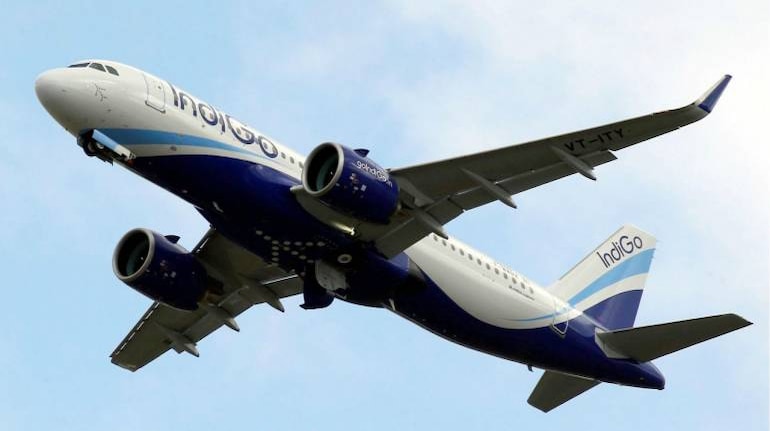



IndiGo, which has had its eyes set on international expansion for a long time, is rejigging its operations to Istanbul from India. The airline announced that it would operate a daily flight to Istanbul from Mumbai, starting January 1, 2023.
From two flights between Delhi and Istanbul, IndiGo is now splitting it to one each from Mumbai and Delhi to Istanbul. Both flights will be operated by the A321neo, the largest aircraft in IndiGo’s fleet.
Also Read: IndiGo to fly widebody planes for the first time
Obstacle race
IndiGo’s operations to Turkey have been full of challenges! The airline announced a codeshare partnership with Turkish Airlines in December 2018 and in January 2019 made an announcement of flights to Istanbul from Delhi effective March 2019. In quick succession, the airline also announced a second daily flight to Istanbul from Delhi.
Between the announcement and effective date, the Indian Air Force struck Balakot, and Pakistan closed its airspace for Indian airlines as well as airlines bound to and from India. This meant that the inaugural flight and subsequent ones had to make a technical stop in Doha, losing the sheen the flights would have otherwise had.
If these challenges weren’t enough, later that year it had to offload baggage of passengers as extremely heavy headwinds restricted the range.
When things seemed to be falling in place at the beginning of 2020, the pandemic struck and flights were shut!
Bilaterals
The Bilateral Air Services Agreement between India and Turkey restricts flights between the two countries to 14 weekly frequencies. Repeated attempts to increase the rights have not gone ahead for a multitude of reasons including geopolitical.
With a codeshare in place, Turkish Airlines benefits the most because of the additional capacity it gets from IndiGo flights bringing in passengers who connect to Turkish destinations beyond Istanbul. As IndiGo became popular with foreign carriers for partnership, it has also signed a codeshare agreement with Air France - KLM, which also vies for the same traffic Turkish Airways does.
Also Read: IndiGo inducts first freighter aircraft
Hedging risks but poor utilisation.
Splitting the Istanbul flights to two destinations will be helpful in tapping additional traffic. Certain cities, mainly the southern and western ones, will have better connection times via Mumbai than via Delhi.
This will also help the airline have a balance of seats instead of having a mountain of seats to sell from Delhi. Post-COVID, traffic hasn't returned to the levels it was before and thus hedging the risks definitely makes sense but it comes with another trap - poor utilisation.
The timings of both flights of IndiGo indicate that the aircraft will stay put in Istanbul the entire day before making the return journey to India. The timings also mirror those of Turkish Airlines flights to Mumbai and Delhi, indicating that the IndiGo flights would further help Turkish with the feed from India.
There are two challenges in this approach. The first is poor utilisation and IndiGo getting into the same trap Jet Airways did in Hong Kong, and Kingfisher Airlines in Singapore. Having your aircraft on ground for a long time on foreign shores decreases utilisation of the asset. Though there remains a counter-argument that maintenance is taken care of during the down time, a typical A320 family aircraft does not need as much time for maintenance.
The other challenge is on the yield scenario. A network built purely on feeding flights is susceptible to passengers being poached by competition at marginally lower prices. Unless IndiGo has got a codeshare deal from Turkish, which makes it more opportunistic to fly feeder traffic, the yield scenario could suffer.
Tail Note
IndiGo has ambitions to fly longer. It has also placed an order for an undisclosed number of A321XLR which could see deliveries in 2024 or 2025. However, in the time the airline placed an order for that and now, a lot has changed geopolitically. The conflict between Ukraine and Russia has rendered considerable air space unusable over Europe. Similar is the case closer home in Afghanistan where limited airspace has been opened up to civilian traffic.
With multiple factors being considered, the actual distance within the 8-hour window would be much more than what it would have been earlier, making it difficult for the airline to plan flights. Until then codeshare is a great way to improve revenue, feed traffic, get traffic and in the process learn about how the traffic is flowing. It gets flagged on social media often by passengers who have flown a full-service carrier like Qatar Airways or Turkish Airlines and have connected on an IndiGo flight.
To look at it positively, it is an opportunity for the airline to look for what is the optimum product that it needs for the XLRs. Yet this has not stopped more and more airlines from sealing a deal with IndiGo for a codeshare partnership!
Discover the latest Business News, Sensex, and Nifty updates. Obtain Personal Finance insights, tax queries, and expert opinions on Moneycontrol or download the Moneycontrol App to stay updated!
Find the best of Al News in one place, specially curated for you every weekend.
Stay on top of the latest tech trends and biggest startup news.